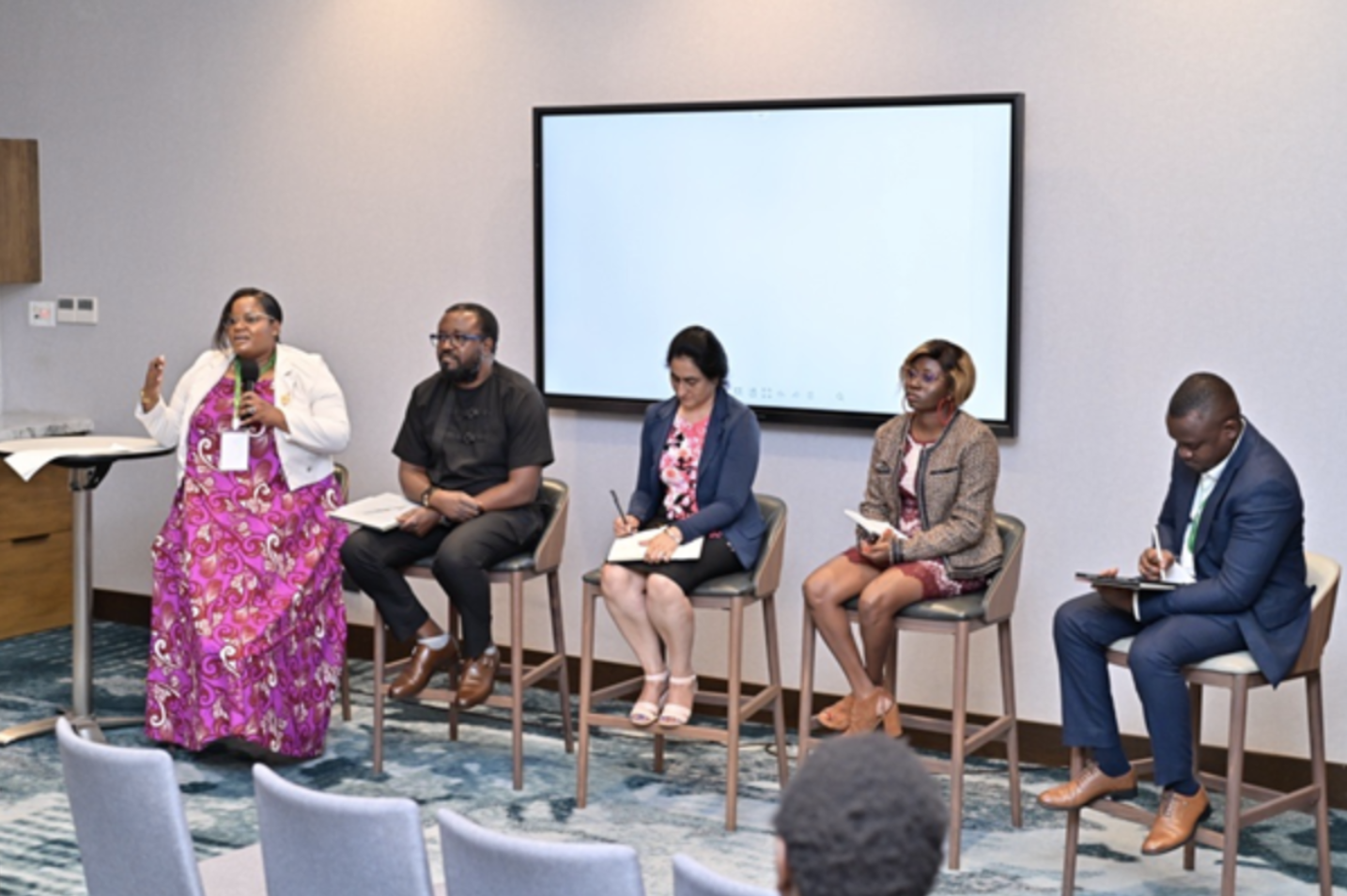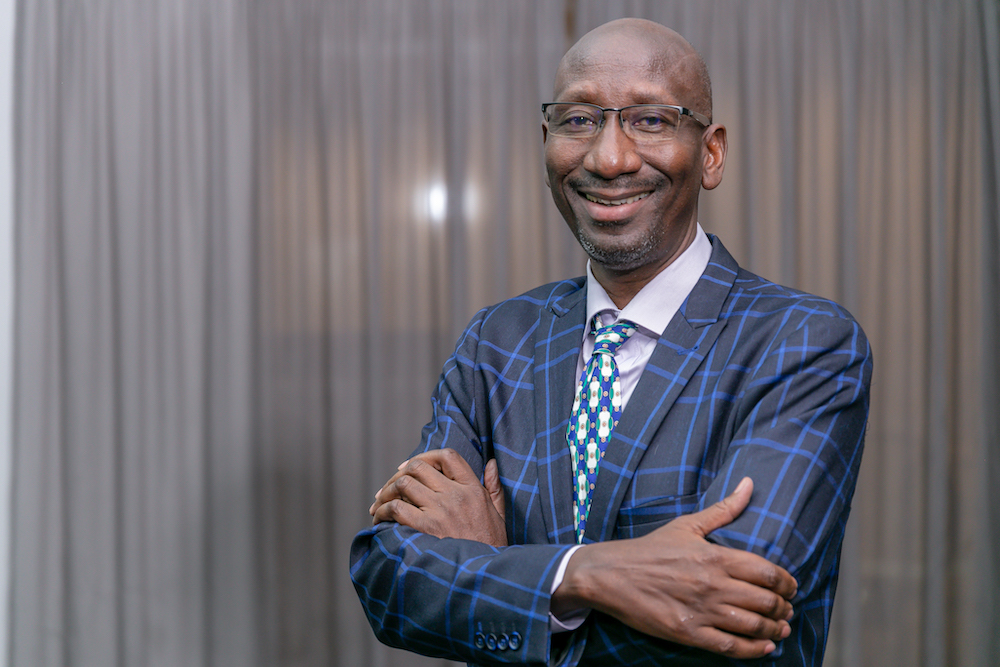
Impact Stories
Strengthening mental health systems in Africa: Introducing the Africa CDC Mental Health Leadership Programme
Thursday, June 6, 2024

By Rebecca Cherop (Edited by Byron Bitanihirwe)
“There still are so many people who are suffering in silence. And there’s still this stigma attached to mental health which we’ve got to completely obliterate.” - Prince William
The Covid-19 pandemic impacted mental health profoundly across the globe. Among its many negative consequences, the pandemic led to sickness, bereavement, increased uncertainty and decreased human connection, in addition to lost opportunities for work and education. However, it also increased appreciation for mental health and the understanding that people who suffer from mental illness often lack the resources they need.
In Africa, there has been a focus on strengthening mental health systems, in recognition of the significant burden of mental health disorders coupled with limited resources and infrastructure. Mental health systems in Africa face historical, social, economic and political challenges. According to a recent report by the World Health Organization, only a third of people living with mental disorders are treated in some high-income countries, and as few as 5% of people in low-and middle-income countries.
The World Health Organization defines a health system as a structure that includes “all the organizations, institutions and resources whose primary purpose is to improve health.” It identifies the elements of health systems as a health workforce (and building capacity), service delivery, health information systems, health system financing, leadership and governance, and medical products, vaccines and technology.
Africa faces a substantial mental health burden (particularly among youth) that includes conditions such as depression, anxiety, substance use disorders, suicidal behaviours and schizophrenia. Unfortunately, the continent has a shortage of mental health professionals, inadequate funding, weak health systems and limited access to essential medications and technologies -- with stigma and discrimination exacerbating challenges in delivering mental health services in Africa. The contribution of mental illness to the global burden of disease, in turn undermining sustainable development, is being increasingly recognized across countries and cultures.
Young leaders, especially those like me with lived experience of mental health challenges, have an opportunity to address mental health challenges holistically – accounting for social determinants of health, such as poverty, conflict, HIV/AIDS and stigma. We can help others find strength by holding leaders accountable for providing mental health services. Collaboration among governments, non-governmental organizations, communities and international partners is essential for developing sustainable health solutions, as is engagement of funding (charitable) and philanthropic vehicles. Prioritization of mental health within the broader health agenda and investment in strengthening mental health systems and research are necessary so that Africa can mitigate the burden of mental disorders and improve the well-being of its populations, contributing to sustainable and social equity.
The Africa Centres for Disease Control and Prevention (Africa CDC), through its Non-Communicable Diseases, Injuries and Mental Health Division, recently launched the Africa CDC Mental Health Leadership Programme (AMHLP) to strengthen mental health systems on the continent through promotion of mental health knowledge and training of the public health workforce through structured courses. The AMHLP seeks to contribute to a critical mass of mental health advocates within African member states health systems to promote prioritization and investment.
The AMHLP is focused particularly on strengthening the capacity of public health personnel at all levels to build a more robust mental health system, with accessible and evidence-based services and integrated interventions across populations. This will be achieved through the engagement of different regional universities, civil society organisations and people with lived experience.
Mental health leadership is a critical component of development. Despite the widely acknowledged social and economic costs of mental illness, mental health remains a low health priority. It is our collective responsibility to ensure that mental health receives the recognition it deserves, beginning with leaders who are positioned to be effective advocates for mental health care in Africa.
About Rebecca Chirop
Rebecca Cherop is a dedicated youth leader in mental health research, advocacy, and lived experience. She collaborates with esteemed organizations like the Wellcome Trust, MQ Mental Health Research, and the Lancet Commission on Global Mental Health and Sustainable Development. As a board member on the Inaugural Africa CDC Youth Advisory Board, she ensures African youth voices are represented in health strategies. An alumna of the Centre for Mental Health Law and Policy India, Rebecca advocates for quality mental healthcare for children and youth through her non-profit, ‘The Semicolon Nation’. She has authored numerous impactful articles and served on the Country Leadership Committee of the Global Mental Health Peer Network. Driven by a commitment to mental health advocacy, Rebecca envisions accessible mental healthcare for all and inspires youth involvement in this cause. Her journey highlights the power of lived experience in shaping a brighter, more inclusive future for mental health care.
About Byron Bitanihirwe
Byron Bitanihirwe is the Programme Manager for BEING at SFA Foundation. Prior to joining SFA Foundation, Byron was a Lecturer in Global Health within the Humanitarian and Conflict Response Institute at the University of Manchester where he structured and led on collaborative (funded) projects with Harvard Medical School and the University of Toronto with a focus on translational psychiatry research. During this time, he also published work in the domain of trauma-informed pedagogy in higher education. He has served as Principal Consultant for Bank Lombard Odier and a Research Portfolio Analyst with MQ: Transforming Mental Health, a UK mental health research charity. His other experience includes a Roche Postdoctoral Fellowship. He holds a PhD from ETH Zürich.



